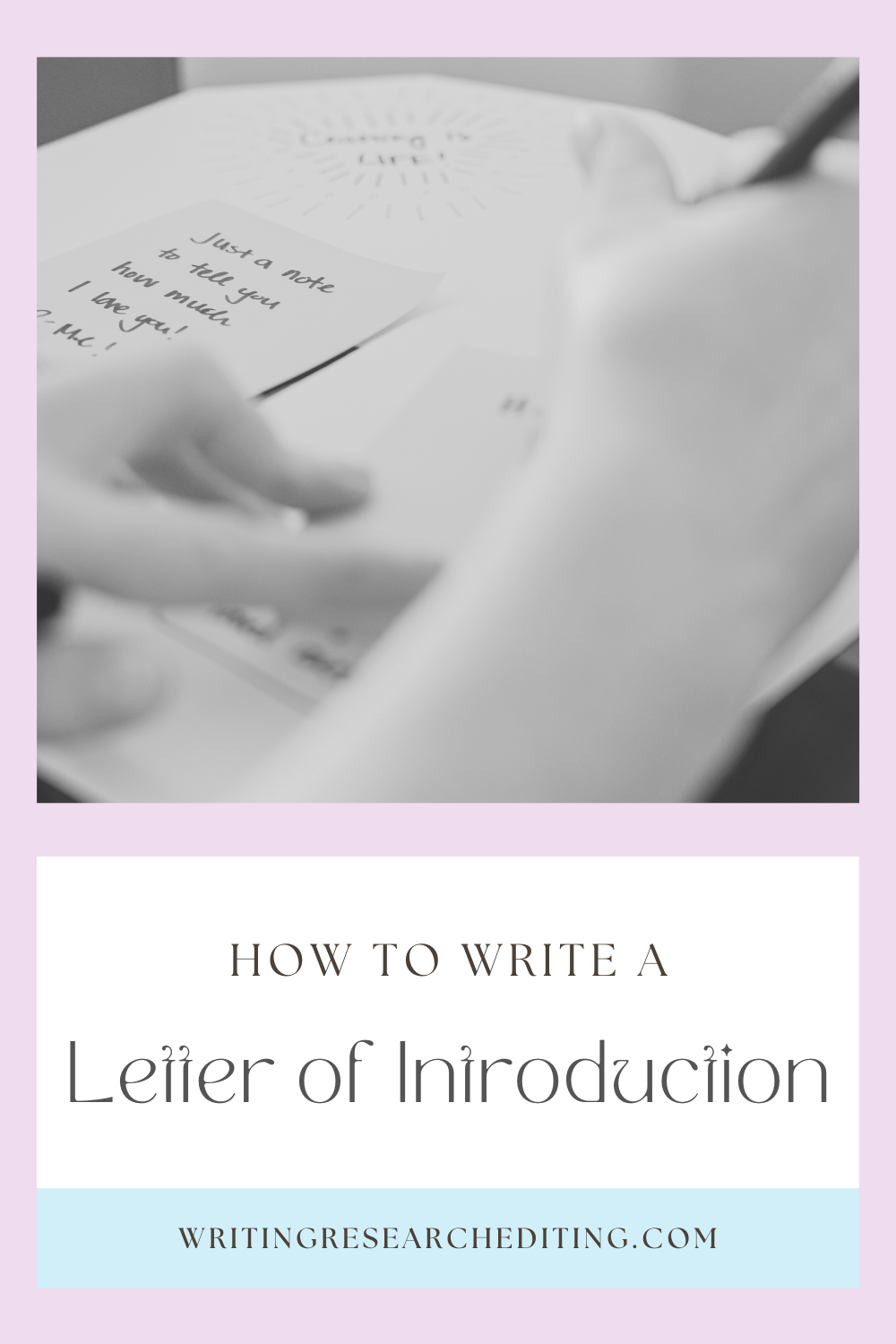When writing a letter of introduction (LOI), you want to make a great first impression. There are two main types of LOIs: a letter connecting two people who should know each other and a letter introducing yourself in hopes of securing a job, a networking connection, or selling products or services. This post will focus on the LOI you would send on your behalf.
How Is a Letter of Introduction Different from a Cover Letter?
While the purpose of a cover letter and an LOI are similar, their function is different. A cover letter generally accompanies a pitch, resume, or creative work. It introduces the document you are sending, summarizes it, and provides context for the reader, highlighting areas on your resume that match job requirements or letting an editor know how your work would fit within their publication.
On the other hand, a letter of introduction has a different purpose. Instead of introducing your enclosures, it introduces you, your products or services, and what you hope to gain from making this connection. While a cover letter is a response to a specific request, an LOI is not.
What Should an LOI Include?
It’s essential to get to the point quickly in an LOI. You want to give context to why you are writing to an individual or a company and show how such a connection could be mutually beneficial. You’ll start by introducing yourself and immediately explaining your reason for writing.
Give concrete examples of how you could benefit the individual. Once you’ve done that, make your pitch for the action you want your reader to take. Do you want the reader to set up a meeting with you? Do you want to invite them to look at further documentation? Be clear about your call to action – and keep the focus of your letter on one goal and one call to action.
How Long Should a Letter of Introduction Be?
A letter of introduction should be the length necessary to answer your reader’s questions: Who is this? Why are they writing to me? How does this connection benefit me? What do they want me to do next? How do I do that? Your reader is busy. Try to keep your letter to a single page.
Don’t Send Your Letter Right Away.
Set your letter aside for at least a day, then come back to it with fresh eyes and read it aloud. Fix anything that seems unclear or wordy, fix typos, and insert those missing words.
Tailor Your Letter to Each Potential Reader.
Don’t send out a group of identical letters of introduction. Instead, research each recipient and ensure that your introduction is tailored to each of them. It takes more work, but going this extra mile can ensure a more positive reception for your letter.
Letter of Introduction Example
The following is an example of a letter of introduction I sent out after researching ways to offer my services to a prospective client.
August 28, 2013
Mr. Bob Smith
Principal
XYZ Media
Date
Dear Mr Smith:
I want to introduce myself. My name is Ronda Bowen, owner of WRE Consulting Services, and I am an editorial consultant based in Wichita, Kansas.
Services I provide include direct marketing copywriting, press release creation, brochure copywriting, web content writing, blog writing, editing, and more. I notice that your website content is minimal – which can be an excellent boon for clients looking for simplicity. However, if you want to expand your website, I would happily work with you to create quality content.
I am also available if you need to outsource your blogging. For instance, we can create a quality content marketing plan. Regular posts to a blog on your website can help boost your company’s visibility in web searches. If you’d like to know more about all the services I offer my clients, you can check out my website at https://writingresearchediting.com.
I hope that we can work together in the future. If you have any questions, please contact me at the email or phone number below.
Sincerely,
Ronda Bowen
Owner, WRE Consulting Services




